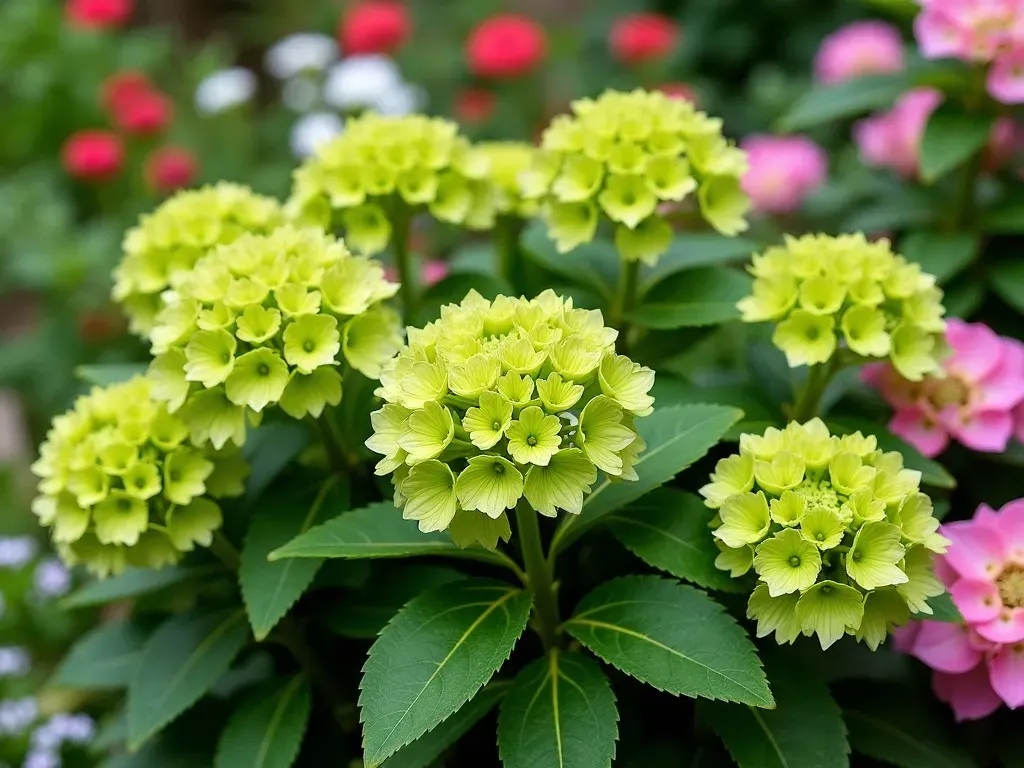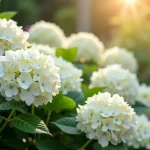Mini green hydrangea plants, often adored for their soft green hues and compact size, are becoming a staple in gardens and floral arrangements alike. With their unique color palette and easy maintenance, these miniatures combine beauty and practicality for gardening enthusiasts of all levels.
Mini green hydrangeas are a type of hydrangea that boasts a diminutive stature while delivering stunning visual appeal. Commonly known for their rounded, mophead blooms that shift in shades from light green to a rich, vibrant hue, these plants are perfect for small spaces, container gardening, and even as cut flowers in arrangements.
Characteristics of Mini Green Hydrangeas
Several traits set mini green hydrangeas apart from traditional varieties. Here’s a breakdown:
| Attribute | Details |
|---|---|
| Size | Typically 1-3 feet tall |
| Flower Color | Green, occasionally fading to pink or cream |
| Bloom Time | Late spring to early summer |
| Hardiness Zones | Zone 3-8 |
| Sun Requirements | Full sun to partial shade |
| Soil Needs | Well-drained, acidic to neutral |
Ideal Varieties of Mini Green Hydrangeas
-
Little Lime Hydrangea (Hydrangea paniculata ‘Little Lime’)
- Size: 3-5 feet tall and wide
- Flowers: Soft green, fading to pink in fall
- Best for: Containers and compact gardens
- Learn More
-
Invincibelle wee white hydrangea (Hydrangea arborescens ‘Invincibelle Wee’)
- Size: 1-2 feet tall
- Flowers: Creamy white with green accents
- Best for: Flower beds and seasonal bouquets
- Explore Varieties
-
Cityline Rio Hydrangea (hydrangea macrophylla ‘Cityline Rio’)
- Size: 2-3 feet tall
- Flowers: Blue with green “eyes” center
- Best for: Colorful accents in shaded areas
- Check Here
-
Bombshell Hydrangea (Hydrangea macrophylla ‘Bombshell’)
- Size: 3-4 feet tall
- Flowers: White with muted pink accents
- Best for: Cottage gardens and cutting gardens
- Learn More
Care and Maintenance Tips
Mini green hydrangeas tend to be resilient and relatively easy to care for. Here are some essential maintenance steps:
- Watering: Ensure consistent moisture, particularly during dry spells. Aim to water deeply rather than frequently.
- Fertilization: Use a balanced, slow-release fertilizer in early spring for optimal growth.
- Pruning: Minimal pruning is required. Focus on removing dead or damaged wood in late winter or early spring.
- Mulching: Use mulch to retain moisture, suppress weeds, and improve soil fertility.
Perfecting Your Landscape with Mini Green Hydrangea
With their diverse capabilities, mini green hydrangeas can be incorporated into various landscaping styles. Here’s how to effectively use them:
- Container Gardening: These compact plants thrive in pots, making them excellent for patios and balconies.
- Border Planting: Use them as borders along walkways or garden beds for a soft aesthetic.
- Cut-Flower Arrangement: Their striking blooms make for stunning floral arrangements that can serve as centerpieces.
Advantages of Mini Green Hydrangeas
| Advantages | Details |
|---|---|
| Space-Saver | Ideal for small yards and patios |
| Aesthetic Appeal | Beautiful blooms throughout the seasons |
| Versatile | Can thrive in different landscapes |
| Low-Maintenance | Minimal care required |
| Great for Floral Arrangements | Fresh, vibrant color for bouquets |
Popularity Trends in Mini Green Hydrangeas
In recent years, the popularity of mini green hydrangeas has soared. Garden designers appreciate their versatility, and their compact size has made them increasingly appealing for urban gardening solutions. According to a study published by the American Society of Landscape Architects, nearly 45% of urban gardeners are opting for dwarf and compact plant varieties due to limited space and a growing trend towards eco-conscious gardening practices.
Frequently Asked Questions (FAQs)
Q1: What is the best location to plant mini green hydrangeas?
A: They prefer full sun to partial shade, with well-drained soil being essential for optimal growth.
Q2: How often should I water my mini green hydrangeas?
A: Water deeply initially, then maintain consistency during dry periods, ensuring the soil is moist but not soggy.
Q3: Can mini green hydrangeas thrive in colder climates?
A: Yes, most varieties are hardy in zones 3-8, making them suitable for various climates.
Q4: How can I change the flower color?
A: Soil pH affects the color; to achieve pink hues, make the soil more alkaline, and for blue, keep it acidic.
Q5: Are they deer-resistant?
A: While not completely deer-proof, many gardeners report fewer instances of damage from deer due to their unique textures and scents.
Conclusion
In summary, mini green hydrangeas are more than just pretty faces; their compact size, resilience, and stunning blooms make them ideal for any garden setting. Whether you’re unleashing your inner floral designer or creating a serene garden landscape, these enchanting plants are sure to leave a lasting impression.

For further information about green hydrangea varieties, visit Epic Gardening.


